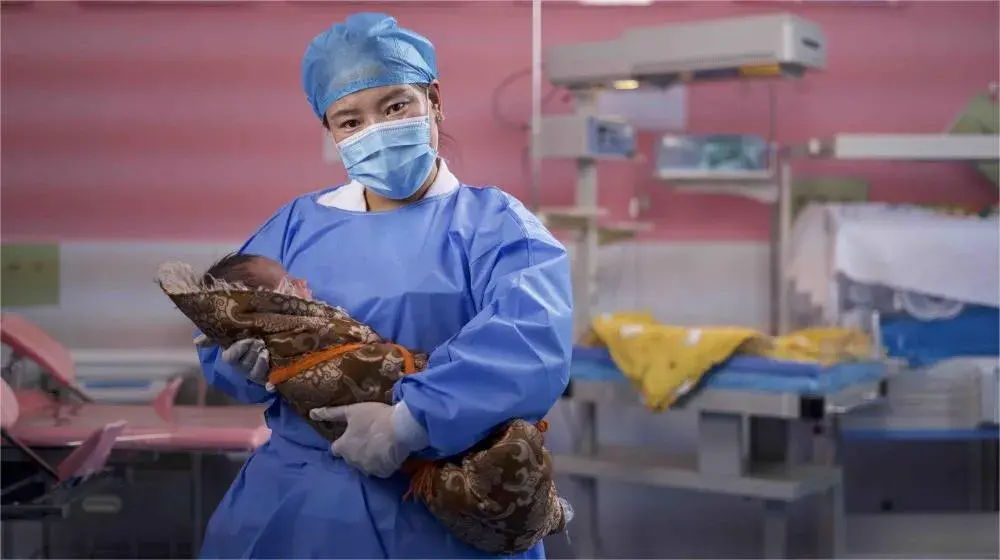Midwives are the heroes of millions of stories.
As providers of culturally sensitive health care, leaders in their communities and emergency responders in times of crisis, they are courageous and indispensable.
When disasters such as climate events or conflict strike, midwives are most often the first responders for women, representing the single-most effective way to avoid preventable maternal deaths.
The climate crisis in particular carries specific threats for women and girls: Research shows that hotter temperatures can lead to pregnancy complications and can cause or worsen maternal-health issues including premature births and miscarriages.
But midwives are not only first responders in the climate crisis. As providers of safe and environmentally sustainable services, they also represent a vital climate solution for the future. For instance, they can contribute to decreasing climate emissions by supporting breastfeeding rather than formula, which must be packaged and shipped.
With that in mind, the theme of the International Day of the Midwife this year is “Midwives: a vital climate solution.”
Many of the countries most at risk of climate change are also where women and girls are the most vulnerable to preventable maternal deaths, child marriage and gender-based violence. Climate disasters can disrupt access to family planning, safe births and other vital services. Midwives are instrumental in ensuring that health services are more mobile and can urgently reach women.
Yet a global shortage of nearly one million midwives and a lack of international commitment to invest in their training, development and support limits their reach – and endangers the women and girls who rely on them for care.
Midwives deserve our recognition and respect. Instead, they are forced to confront challenging work conditions, low pay and a lack of career opportunities – all factors driving the global shortage. Too often, this majority-female workforce also faces gender discrimination and sexual harassment while on the job.
The world must urgently invest in creating an environment that enables midwives to do their important work, by establishing pathways to quality education, providing necessary resources and empowering them to act as full partners across health systems everywhere.
In more than 125 countries, UNFPA advances midwifery by strengthening quality education, regulations and workforce policies, and building strong national associations of midwives. To date, UNFPA has supported the education and training of close to half a million midwives worldwide, trained more than 100,000 midwifery faculty members and invested in more than 1,600 midwifery schools.
In collaboration with the International Confederation of Midwives, UNICEF, the World Health Organization and a host of global partners and donors, UNFPA is developing a Global Midwifery Acceleration Roadmap, which will be launched at the World Health Summit in October 2024.
“In a world where every two minutes a woman or girl dies during pregnancy, childbirth or its aftermath – as our latest data attest – the midwife is always the hero of the story,” UNFPA Executive Director Dr. Natalia Kanem has said. “Think of a midwife: what comes to mind? Excellent teamwork, competence, good judgment and caring. Hallmarks of the profession – traits that underpin the best of humanity, that will surely help create the peace we seek.”


